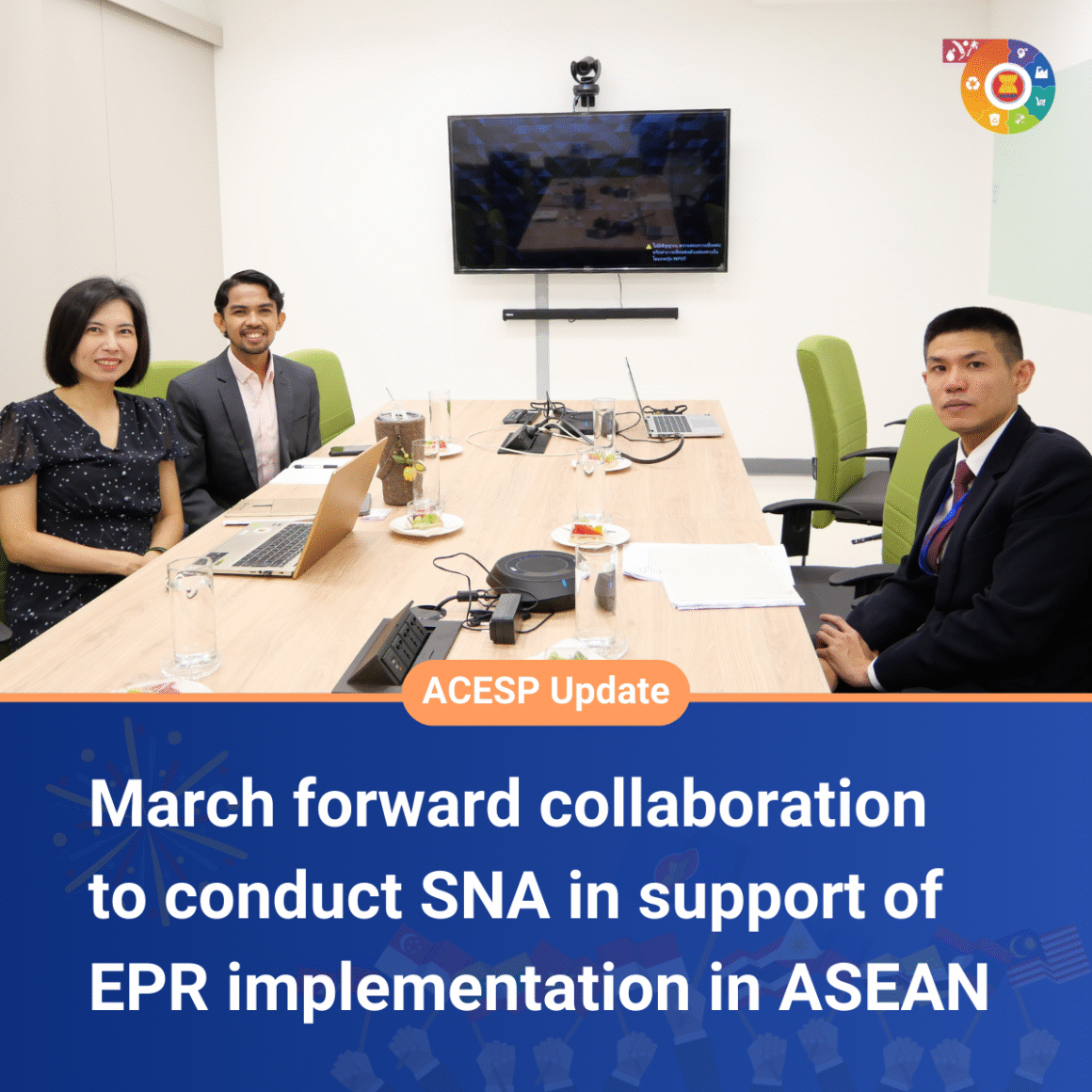The ASEAN Circular Economy Stakeholder Platform (ACESP), of the ASEAN Centre for Sustainable Development Studies and Dialogue (ACSDSD), together with has partnered with the Sustainable Environment Research Institute (SERI), Chulalongkorn University, to advance the Extended Producer Responsibility (EPR) Stakeholder Mapping and Analysis Project under the Thailand–Denmark Strategic Sector Cooperation (SSC) on circular economy and waste management.
Following the contract signing on 9 August 2025, the SERI team—led by Dr Sujitra—began laying the groundwork for a two-year research initiative, supported by ACSDSD and ACESP. This project will survey six ASEAN countries with existing EPR legislation—Vietnam, the Philippines, Indonesia, Singapore, Thailand, and Malaysia—while also conducting a desktop review of all ten ASEAN Member States to map stakeholders and engagement patterns.
Dr. Treesuvit Arriyavat, Senior Project Manager of ACSDSD and the secretariat of ACESP, is closely engaged in the project’s coordination and regional outreach, ensuring that findings will be shared with ASEAN stakeholders through the ACESP platform to foster inclusive dialogue and joint learning.
In Q3/2025, the project achieved important milestones, including a comparative analysis of EPR and circular economy policies in six ASEAN countries—examining legal frameworks such as Singapore’s Resource Sustainability Act, the Philippines’ Extended Producer Responsibility Act, and Vietnam’s Law on Environmental Protection—alongside the scope of covered products, the roles of Producer Responsibility Organisations (PROs), and enforcement mechanisms, with initial findings highlighting significant differences across countries where Singapore stands out with a well-defined PRO system while others remain in early stages.
In parallel, a regional network survey tool (SNA survey) was developed to capture five dimensions—financial/resource flows, knowledge exchange, social trust, political/regulatory influence, and material/service flows—and successfully pilot-tested with Thai environmental policy experts to refine its structure. Despite these advances, challenges remain, particularly the differing levels of legal and institutional readiness across ASEAN and limited access to informal sector stakeholders, which requires tailored outreach strategies. Looking ahead to Q4/2025, the project will conduct an in-depth comparative SWOT analysis of the six key countries, expand pilot testing of the survey tool with ASEAN stakeholders through ACESP’s regional network, and prepare for field data collection in early 2026.
Through the partnership of ACSDSD, ACESP, and SERI, this initiative will generate actionable insights to inform policy recommendations, strengthen regional cooperation, and accelerate ASEAN’s transition to a circular economy and improved waste management systems.
About us:
The ASEAN Circular Economy Stakeholder Platform (ACESP) is a regional facility helping ASEAN Member States (AMS) achieve sustainable consumption and production by accelerating the transition towards a circular economy.
Website: ce.acsdsd.org, acsdsd.org
Facebook: ASEAN CE Platform
LinkedIn: ASEAN Circular Economy Stakeholder Platform (ACESP)


